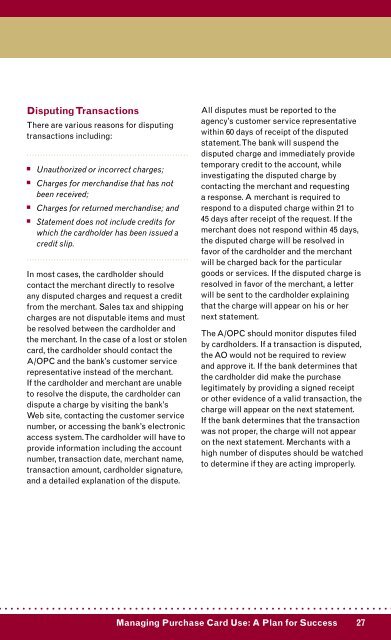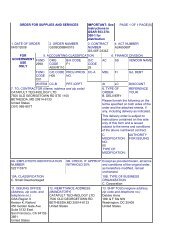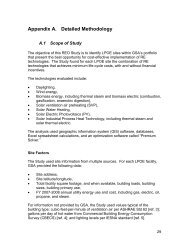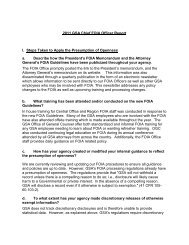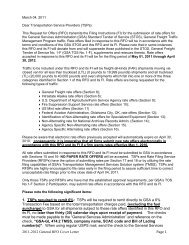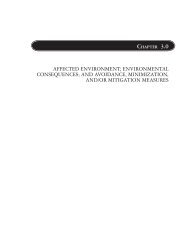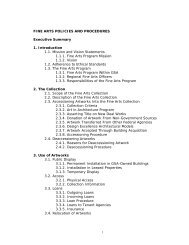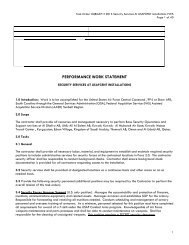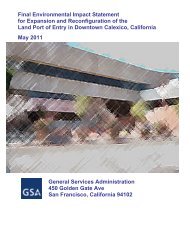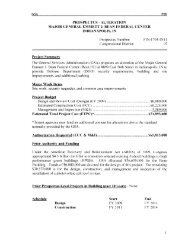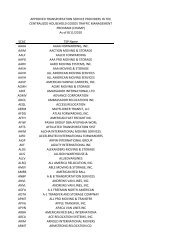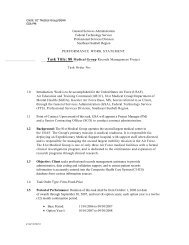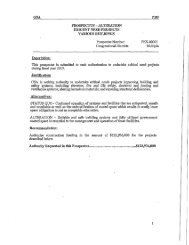Managing GSA SmartPay® Purchase Card Use
Managing GSA SmartPay® Purchase Card Use
Managing GSA SmartPay® Purchase Card Use
Create successful ePaper yourself
Turn your PDF publications into a flip-book with our unique Google optimized e-Paper software.
Disputing Transactions<br />
There are various reasons for disputing<br />
transactions including:<br />
............................................................<br />
n<br />
n<br />
n<br />
n<br />
Unauthorized or incorrect charges;<br />
Charges for merchandise that has not<br />
been received;<br />
Charges for returned merchandise; and<br />
Statement does not include credits for<br />
which the cardholder has been issued a<br />
credit slip.<br />
............................................................<br />
In most cases, the cardholder should<br />
contact the merchant directly to resolve<br />
any disputed charges and request a credit<br />
from the merchant. Sales tax and shipping<br />
charges are not disputable items and must<br />
be resolved between the cardholder and<br />
the merchant. In the case of a lost or stolen<br />
card, the cardholder should contact the<br />
A/OPC and the bank’s customer service<br />
representative instead of the merchant.<br />
If the cardholder and merchant are unable<br />
to resolve the dispute, the cardholder can<br />
dispute a charge by visiting the bank’s<br />
Web site, contacting the customer service<br />
number, or accessing the bank’s electronic<br />
access system. The cardholder will have to<br />
provide information including the account<br />
number, transaction date, merchant name,<br />
transaction amount, cardholder signature,<br />
and a detailed explanation of the dispute.<br />
All disputes must be reported to the<br />
agency’s customer service representative<br />
within 60 days of receipt of the disputed<br />
statement. The bank will suspend the<br />
disputed charge and immediately provide<br />
temporary credit to the account, while<br />
investigating the disputed charge by<br />
contacting the merchant and requesting<br />
a response. A merchant is required to<br />
respond to a disputed charge within 21 to<br />
45 days after receipt of the request. If the<br />
merchant does not respond within 45 days,<br />
the disputed charge will be resolved in<br />
favor of the cardholder and the merchant<br />
will be charged back for the particular<br />
goods or services. If the disputed charge is<br />
resolved in favor of the merchant, a letter<br />
will be sent to the cardholder explaining<br />
that the charge will appear on his or her<br />
next statement.<br />
The A/OPC should monitor disputes filed<br />
by cardholders. If a transaction is disputed,<br />
the AO would not be required to review<br />
and approve it. If the bank determines that<br />
the cardholder did make the purchase<br />
legitimately by providing a signed receipt<br />
or other evidence of a valid transaction, the<br />
charge will appear on the next statement.<br />
If the bank determines that the transaction<br />
was not proper, the charge will not appear<br />
on the next statement. Merchants with a<br />
high number of disputes should be watched<br />
to determine if they are acting improperly.<br />
<strong>Managing</strong> <strong>Purchase</strong> <strong>Card</strong> <strong>Use</strong>: A Plan for Success 27


